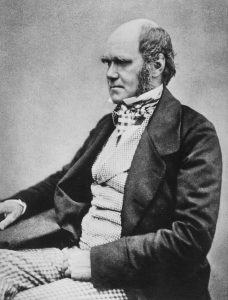It is better to be divided by truth than to be united in error. It is better to speak the truth that hurts and then heals, than falsehood that comforts and then kills.
—Adrian Rogers—
Key point: The church must repent of its worldly approach to tolerance and consistently exercise genuine love.
Note: This post is the introductory article in a series on equipping the next generation to defend their faith and to embrace a biblical worldview.
In a sermon he preached on February 28, 1999, the late Dr. D. James Kennedy, long time pastor of the Coral Ridge Presbyterian Church in Fort Lauderdale, Florida, placed a spotlight on the one virtue that modern society upholds and seeks to demand of everyone—tolerance. Dr. Kennedy explained that the tolerance society now champions isn’t the same kind of tolerance Americans have practiced throughout the country’s history.

- While tolerance used to mean exercising respect by putting up with a person or group with whom one disagreed, it now means
- accepting and affirming all views as equal in value and as equally true. Moreover, it now means affirming all lifestyles as equally valid.
As we soon will see, the former definition of tolerance can be called negative tolerance, since it preserves differing or opposing opinions. The latter, more modern definition, can be called positive tolerance. Under positive tolerance, to fail to endorse the perspective of someone with whom we disagree is to be intolerant and bigoted.
But there’s a problem. The very people who advocate positive tolerance aren’t really tolerant of all views. In particular, they have a huge problem with the beliefs of biblical Christianity. Why? Because the tenets of biblical Christianity are absolute.
The very people who advocate positive tolerance are not really tolerant of all views. In particular, they have a huge problem with the beliefs of biblical Christianity. Why? Because the tenets of biblical Christianity are absolute.
In 1991, a very insightful Chuck Colson said,
A belief in tolerance is about as close as America comes to a national creed today. All lifestyles are equal. No one has the right to criticize. It’s the philosophy of the talk show hosts: Oprah, Donahue, Geraldo—keep an open mind, never judge anyone.
There is only one thing that is not tolerated—–and that is, people who are intolerant themselves, or rather, people who are labeled as intolerant. People with moral and religious convictions. These people are considered bigots.
How We Got Here—And Where “Here” Is
Returning to Dr. Kennedy’s sermon, we note that the new tolerance is a byproduct of the postmodern era. As Dr. Kennedy explained [minor edits made for clarity],
Postmodernism [the beginning of which is marked by the collapse of the Berlin Wall in 1989] says that rationalism has failed. The modernist said, “Faith has failed. We must be rational.” The postmodernist has said “Reason has failed. We must resort to feeling.”
How often do you hear people say, “Well I feel that so-and-so. I feel that Washington, D.C. is the capital of this country”? I don’t feel that. I think it. But it’s always not “I think” but “I feel.” The only important thing is how they feel. And we have even invented a new civil right. And that is the civil right for my feelings not to be hurt.…
We cannot have anybody’s feelings hurt. And part of postmodernism is this universal individual. We don’t have countries, we don’t have anything except the individual. There’s no human race, there’s just the individual and his feelings, and they must not be offended.…
And so we have gone from a democracy, a government by the people—of the people, by the people, and for the people—to a government by the sovereign individual. Or should I say, more accurately, the sovereign individual’s feelings? And that brings us to the fact that there are not even any universal truths of any kind for people, and whatever truths we have are simply societal constructs that each community or society or nation has created and these do not apply beyond the borders of that culture.
This is why I have repeatedly said that tolerance is the last virtue of a depraved society. When you have an immoral society that has blatantly, proudly violated all of the commandments of God, there’s one last virtue they insist upon—tolerance for their immorality. And they will not have you condemning what they have done as being wrong. And they’ve created a whole world construct in which it’s not, and in which they are no longer the criminal or the villain or the evil person, but you are. And so they call evil good and good evil (see Isaiah 5:20).
Tolerance is the last virtue of a depraved society.
—D. James Kennedy—

Also operative in this progression of ideas in history was the arrival of Darwinism on the world stage. Darwinism eliminated the “need” for God and absolute truth. The human individual became the measure or all things.
Even if you’ve been unfamiliar with the terms modernism and postmodernism, surely you’ve seen evidence of the grip of the new tolerance on American culture. Note carefully how accurate Dr. Kennedy is when he says that a new civil right has been established—the right not to have one’s feelings hurt, or we might call it the right not to be offended.
The new tolerance has ushered in a new civil right—the right not to be offended.
—D. James Kennedy—
The Biblical Response
Unfortunately, the new tolerance also has found its way into the church. One of the “Eight Menacing Trends in the American Evangelical Church” today is that “the church has equated loving people with not offending them.” Other trends on the list provide evidence as well.

How should followers of Jesus Christ live out their faith when the new tolerance confronts them from every side? Josh McDowell, a Christian apologist and an insightful analyst of cultural trends, provides the answer in a presentation he gave well over a decade ago1 to the staff of Cru (Campus Crusade for Christ).
Like Chuck Colson and D. James Kennedy, Josh expressed insights in his presentation that were ahead of the times.
Listen carefully to the following series of sound bites from Josh’s presentation. While you can listen here, you’ll be able to follow Josh’s progression of thought much more easily on this page, where a complete text of this 3½-minute compilation, along with the audio, is available.
- Josh defines negative tolerance.
- Josh defines positive tolerance.
- Josh illustrates the difference between the two.
- Josh points to the biblical response to a culture demanding positive tolerance.
- Josh cites the importance of balancing truth and love.
- Josh emphasizes that loving people will be costly.
- Josh shows how genuine love relates directly to absolute truth and principles of right and wrong.
These insights are piercing. They also are sobering. They call on the church to repent of its soft approach to truth and to love authentically. This means exercising love by demonstrating compassion and by declaring truth—but we as Christians cannot do these things if we abandon a high view of God’s authority and the reliability of the Scriptures.
Francis Schaeffer was another Christian leader who read the culture clearly and accurately. In 1984 he wrote that easy Christianity is a thing of the past, and that

only a strong view of Scripture is sufficient to withstand the pressure of an all-pervasive culture built upon relativism and relativistic thinking.…Without a strong commitment to God’s absolutes, the early church could never have remained faithful in the face of the constant Roman harassment and persecution [it received]. And our situation today is remarkably similar as our own legal, moral, and social structure is based on an increasingly anti-Christian, secularist consensus.
Christian thinker and apologist Jonathan Morrow is dead on when he says, “Our culture desperately needs to hit the reset button when it comes to larger conversation about truth and tolerance.” For this to happen, the church must act as did the early Christians. If we identify ourselves with Jesus Christ, we no longer can continue to accommodate the culture by refusing to uphold the truth for fear of offending people.
Why? Because refusing to uphold the truth represents a failure to exercise genuine love!
Copyright © 2018 by B. Nathaniel Sullivan. All rights reserved.
Reminder: This post is the introductory article in a series on equipping the next generation to defend their faith and to embrace a biblical worldview.
Notes:
1Josh McDowell, “Tolerating the Intolerable,” Dr. James Dobson’s Family Talk, aired on The following 3½-minute talk is a compilation of several sound bites in “Tolerating the Intolerable,” a presentation given by Josh McDowell to the staff of Campus Crusade for Christ (later renamed Cru) in Orlando prior to October, 2002. The speech aired on Dr. James Dobson’s Family Talk on December 11 and December 12, 2013.1
A portion of this article is based on the content of “Discernment Needed, Part 2: Eight Menacing Trends in the American Evangelical Church,” which was originally published May 28, 2015.

Be First to Comment